Ajinkya Rahane: India vs Australia: Priority was to make the players believe in themselves, says Ajinkya Rahane | Cricket News – Times of India
In a chat with TOI, Rahane put the Australian sojourn in perspective.
Excerpts…
Self-belief – Has this term ever been more integral to your cricketing life? For someone who waited two years and 16 Tests before he could debut, and had the sword hanging forever, is this the proverbial ‘moment of truth’?
I have always believed I belong at the highest level. It was never a question of self-belief or doubt. What people say, or rather how people generally like to talk, has seldom bothered me. Same was the case this time – I wasn’t really bothered about what outsiders were saying (post Adelaide when he took over).
I know where I’m coming from, the contributions I’ve made – not just now, but in the past too – in crucial times. That’s what mattered. What people talk, or think is their problem.
Take us through what happened after the Adelaide result, until the morning of the MCG Test?
The journey started from those practice games – the two three-day practice games. I knew Virat would be leaving after the first Test, so it was already on my mind – going forward, what would be my plan, what kind of strategy I would adopt, how would I use each player, what would be my message to them?
These things had already started occupying the mind-space. Then we went to Adelaide, where I took the backseat, because obviously, Virat was the captain. If you look at the Adelaide Test, apart from that one hour of madness, we played good cricket – especially the first two days. We batted well, we bowled well. In fact, we were in a good position. But then that one hour took everything away from us.
To say it was disappointing will be an understatement. But in hindsight we just didn’t know how to react, what was happening. If you look at that Adelaide second innings, nobody actually got out to bad shots. Nobody threw his wicket away.
We sat down after that Test and one of the first things we told ourselves was ‘we’re not going to talk about what happened on that day’. Because, every time we’d have brought out that topic, we’d have ended up putting pressure on ourselves. That is one thing we consciously didn’t want.
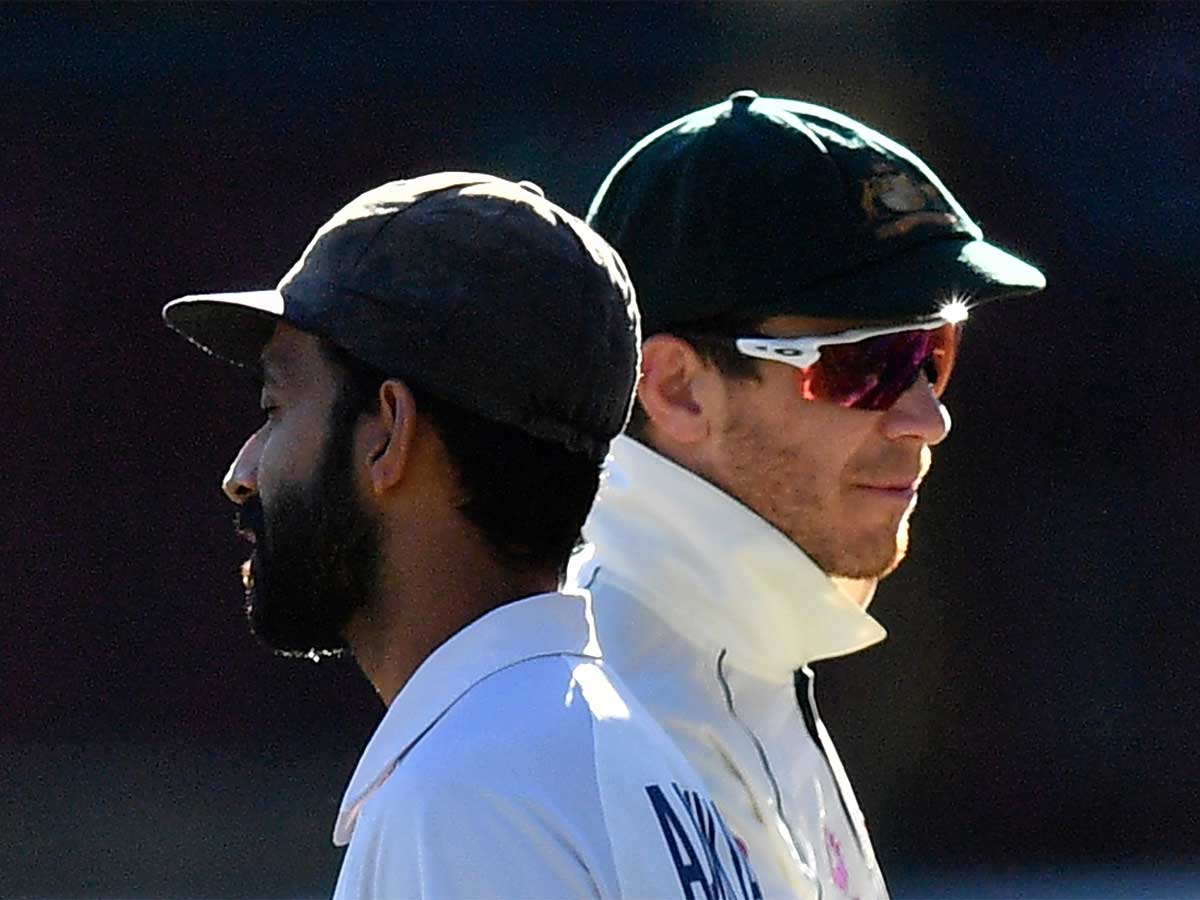
(Ajinkya Rahane and Time Paine – AFP Photo)
We didn’t want the players to doubt their abilities because of what happened during that one hour of play. That hour had to be forgotten, kept aside for another day. But not when we were preparing for the next Test. We decided not to talk about it.
We had to move forward. There was no point looking back. The only thought that had to remain at the top of our minds was – how do we bounce back? It is with that mindset we flew to Melbourne – a ground where our record has been good.
Another thing – in fact, my message to the players – was let’s not worry about the result here either. Don’t think or give much weightage to what anybody outside of the team is talking about us. ‘If they want to write us off, that’s fine. That’s their job, let them do it. We’ll do what our job is – which is play cricket’, is what I told the team.
Was there a strategy laid out?
The strategy was simple – let’s stick together, let’s back ourselves, walk out with a positive attitude and that fighting spirit. And let’s accept whatever the result is, in the end. The first practice session at the MCG was the first morale booster. Everybody was looking to help each other out.
Quietly, there was a resurgence taking place – even though nobody would’ve been able to put a finger on it and say it so at that point. Until the morning of the match, when Australia won the toss, we were actually looking to bat first – despite what had happened in Adelaide.
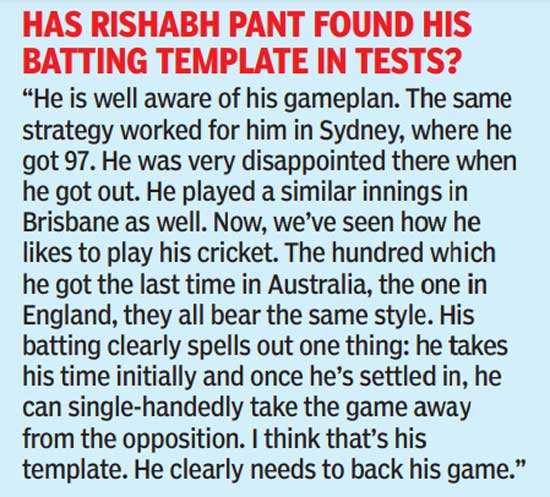
You said your message to the players was to not listen to what others are saying. But isn’t that easier said than done? There was so much noise. How does one ignore that or look the other way?
See, generally before a series, it’s been a habit that I don’t read anything. I tend to completely switch myself off – be it social media, news media or anything else. If something has to be said, my social media team handles it. I just shut myself from everything. As a captain, that’s the first thing I told my teammates too.
Generally, what happens is when a team is failing, people will talk about what they’ve seen on the field and obviously the performances. These thoughts have a way of creeping in because as a human being, you tend to get drawn towards it, regardless of the reason. You start thinking about the mistakes that happened, what went wrong, how badly the confidence got dented, etc. Now, that’s something I consciously wanted everyone to avoid.
Whatever people are talking, let them. Let’s believe in each other and think about what’s coming up next – that, I firmly thought – was going to be the key.
See, it’s very simple. We knew, if we do well, it is these same people who will be talking differently about us. That’s the message I wanted to give my team. There’s that saying no – ek kaan se suno and doosre se nikaalo (hear it from one year, let it go from the other). The sooner we accept something in life, the quicker we can move forward. That was the key to getting over Adelaide.
There are people who were constantly writing us off from the day we had landed there. ‘India won’t stand a chance, will lose 4-0’ – that kind of chatter was always there. Adelaide just fanned it further. The credit for what has happened goes to the entire team. Each and every individual has contributed to this in equal measure. It was all made possible because everybody came together.
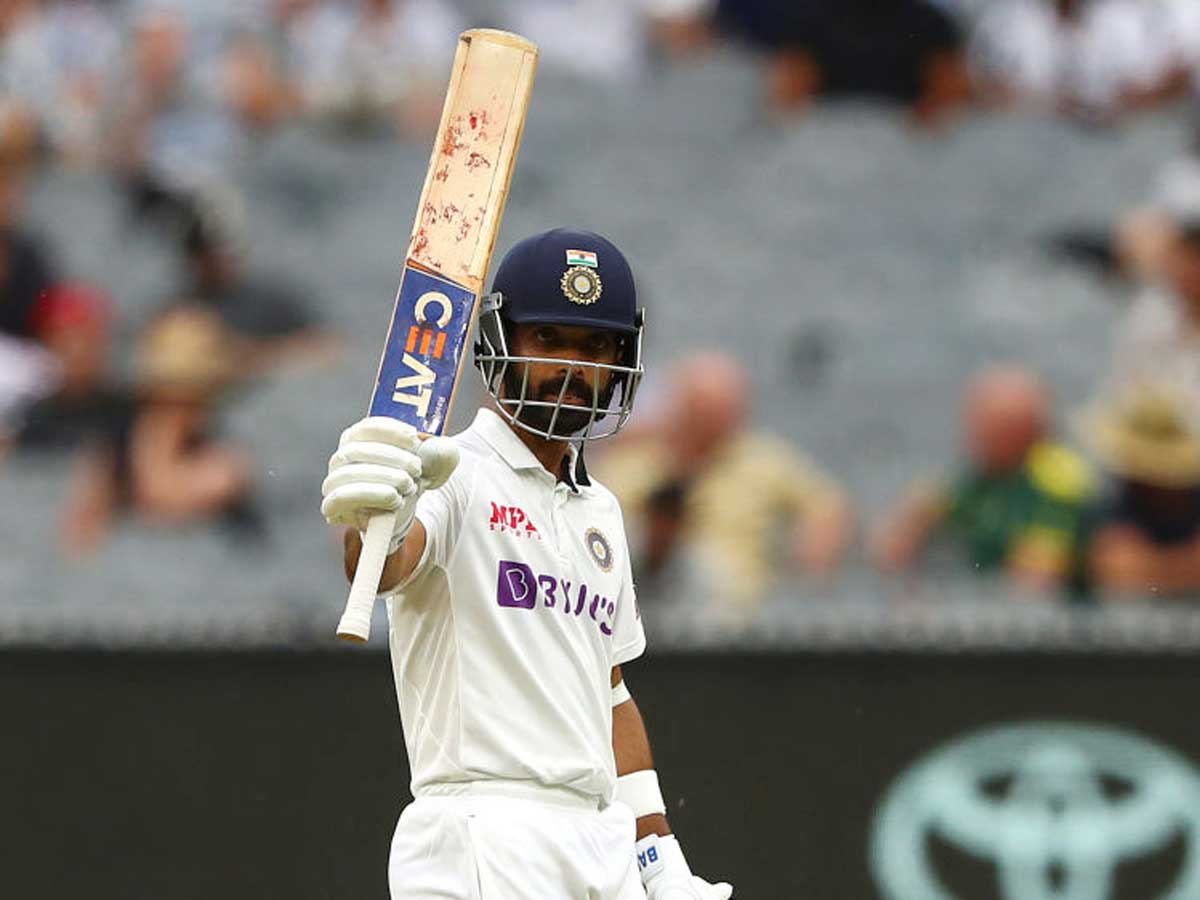
(Rahane scored a century in the Melbourne Test – ANI Photo)
You ignored all the noise. But nobody was in a state of denial that Adelaide was unbelievably shocking…
Nobody was in a state of denial. We knew what exactly had happened. We understood the enormity of it. We were living it every second. The point is, we didn’t want to carry it to Melbourne and make it all about Adelaide. We had to move away from Adelaide to overcome it. Allowing negativity to seep in is very easy. When you’re in such a vulnerable state, things affect you in no time. It was important to protect the team from that state of vulnerability.
Lord’s or Melbourne – your favourite hundred? You have insisted it’s Lord’s. But second thoughts on that?
The situation at Lord’s was different. Conditions were different. Both were challenging. Like at Lord’s, like at MCG, it was overcast, we were one-match down, all odds were against us. When I was first asked this question, Lord’s just automatically came to mind because the enormity of this one (MCG hundred) hadn’t yet sunk in. But later I realised, and others also pointed out, that the Melbourne knock is the best.
Yes, I’ll acknowledge that. Now I realise, given the circumstances, the way the series was poised at that time, it’s got to be the Melbourne innings.
You brought technical changes to your batting at MCG? Shortened your back lift, played too close to the body, not play on the up like how you otherwise prefer…
I did make a few changes but that was just because of the conditions and the wicket. When we were playing the practice game, there are things that I kept trying and told myself, if this is working then good. And it worked. I just wanted to avoid certain natural instincts, like playing on the rise and all. Minor things.
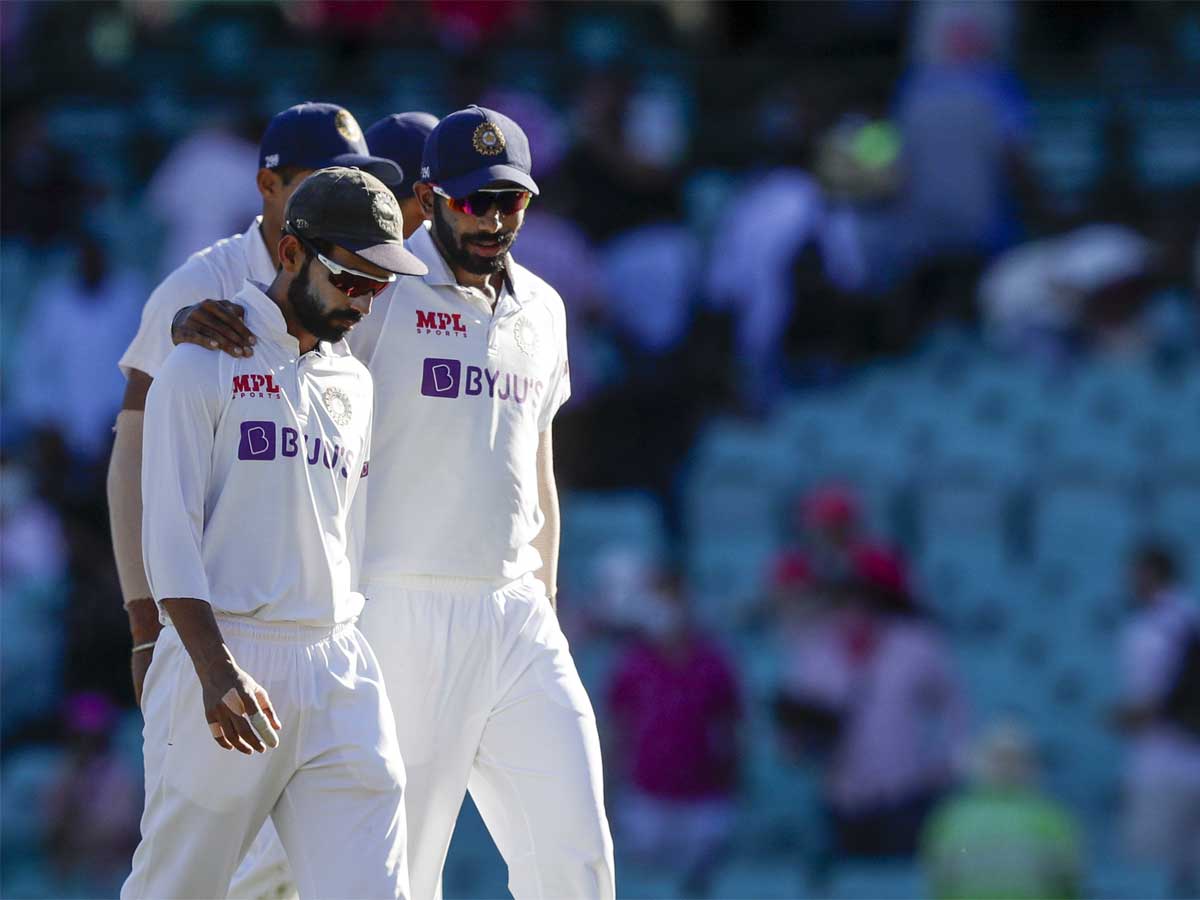
(Ajinkya Rahane, left, and Jasprit Bumrah during the Sydney Test – AP Photo)
Did anyone tell you about it or you spoke to someone about it?
Nobody told me anything. I just backed my instincts, because of the bounce in the wicket, how they were bowling, the conditions in general.
Where do you rate this Australian pace attack? India’s faced South Africa and England’s finest in recent years. Where does the Cummins-Starc-Hazlewood trio figure?
Top-class attack. All three of them, absolutely unrelenting. It’s the best attack India has faced overseas in recent years.
Top class verbal duels too…
When you play Australia in Australia, remember they’ll come with everything they’ve got. They’ll come hard. Even in 2018-19, that’s what happened. That’s the kind of cricket they always play, and we expected that to happen this time too. The trick is to know what kind of cricket you want to play when you land in Australia. You’ve got to back yourself and your cricket. That’s what we did. Then, even if they want to talk or sledge, fine – that’s their thing. We didn’t allow that to get under our skin.
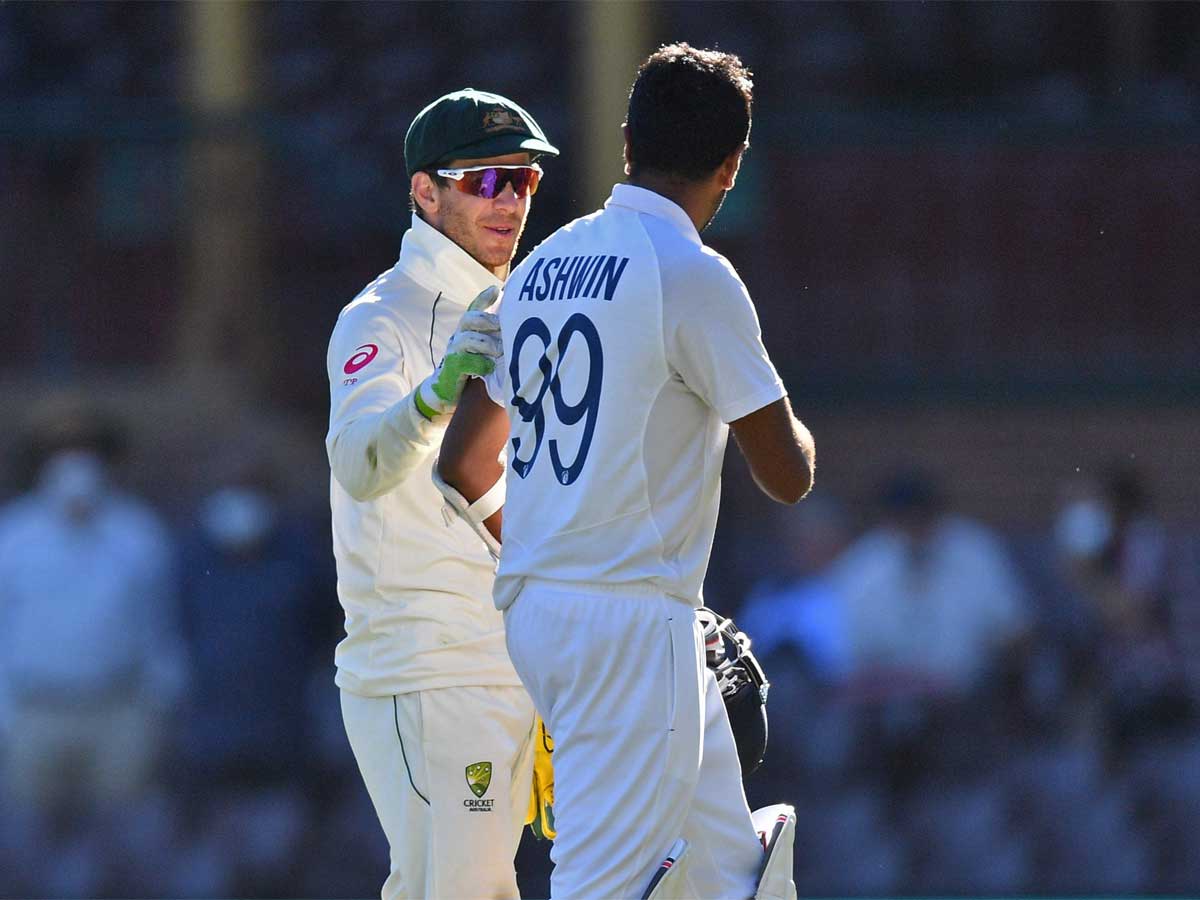
(Tim Paine and R Ashwin had a verbal spat – AFP Photo)
As a captain, you have diligently followed the five-bowler philosophy…
The old saying sticks. You want to win a Test match, it’s not going to happen without taking 20 wickets. When I captained for the first time in Dharamsala, I remember Anil Kumble told me – it’s your call, whether you want to go in with five bowlers or play an extra batsman.
Sometimes, when you play with four bowlers, they generally tend to get tired. The fifth bowler gives that layer of cushion. They can keep coming back fresh. I have always believed in that, especially when playing outside of India it’s even more effective. The batsmen must take that extra responsibility.
What went into the picking of the eleven for Gabba?
Yes, it was a huge challenge. From whoever was available, the moot question was – how to pick the best combination and make the best use of the available resources. The bowling combination was under greater consideration because, again, it was about whether to go in with the fifth bowler or an extra batsman. There were going to be three debutants in that Test – all bowlers.
The top-most priority was to back them at all times. Make them believe in themselves. To debut against Australia, in Australia, that too at a venue like the Gabba and in a series decider – well, talk about trial by fire.
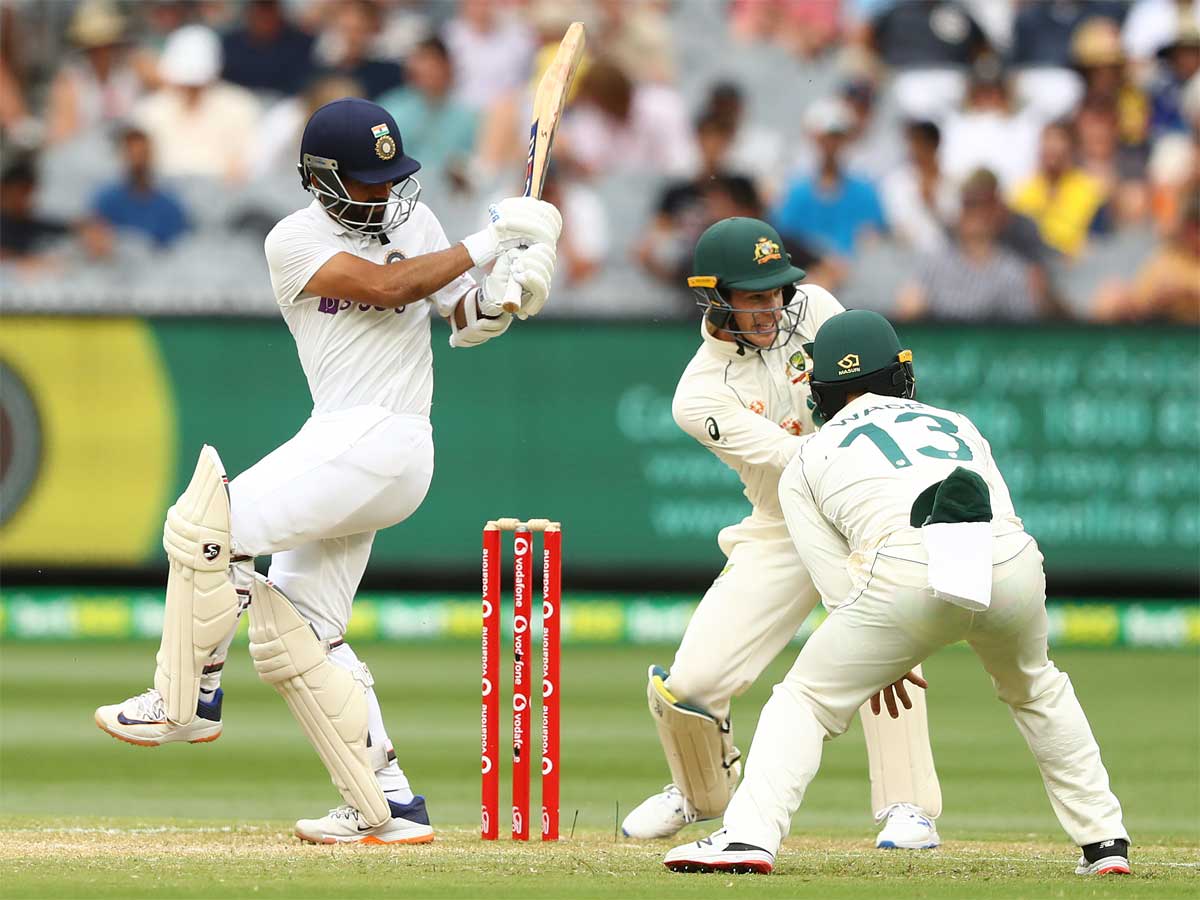
(Rahane batting during the Melbourne Test – Getty Images)
On Day 5 at Gabba, when did it first occur to you’ll that a win was possible?
The initial idea was to play one session at a time. On the morning of the game, we spoke about playing normal cricket, at least until lunch, and then see what happens. We got a good partnership between Pujara and Shubhman. When Shubhman got out, I thought I should carry on that momentum and try and play a bit freely. That was the discussion with Pujara – that I’ll go looking for runs and he stays at the other end and do what he was doing – just hold that end.
The idea was, even if I got 30-40 quick runs there, the momentum would be on our side post-tea. The target was – if we’re left with around 35 to 38 overs with anywhere between 140-160 to chase, we’re in the game. We would have wickets in hand.
When I got out, and Rishabh was walking in, I saw there were around 20 minutes left for tea. I told Rishabh – just play normal till tea. Once we came back from tea, we would go back to the same approach – Pujara would hold one end, Rishabh would play freely.
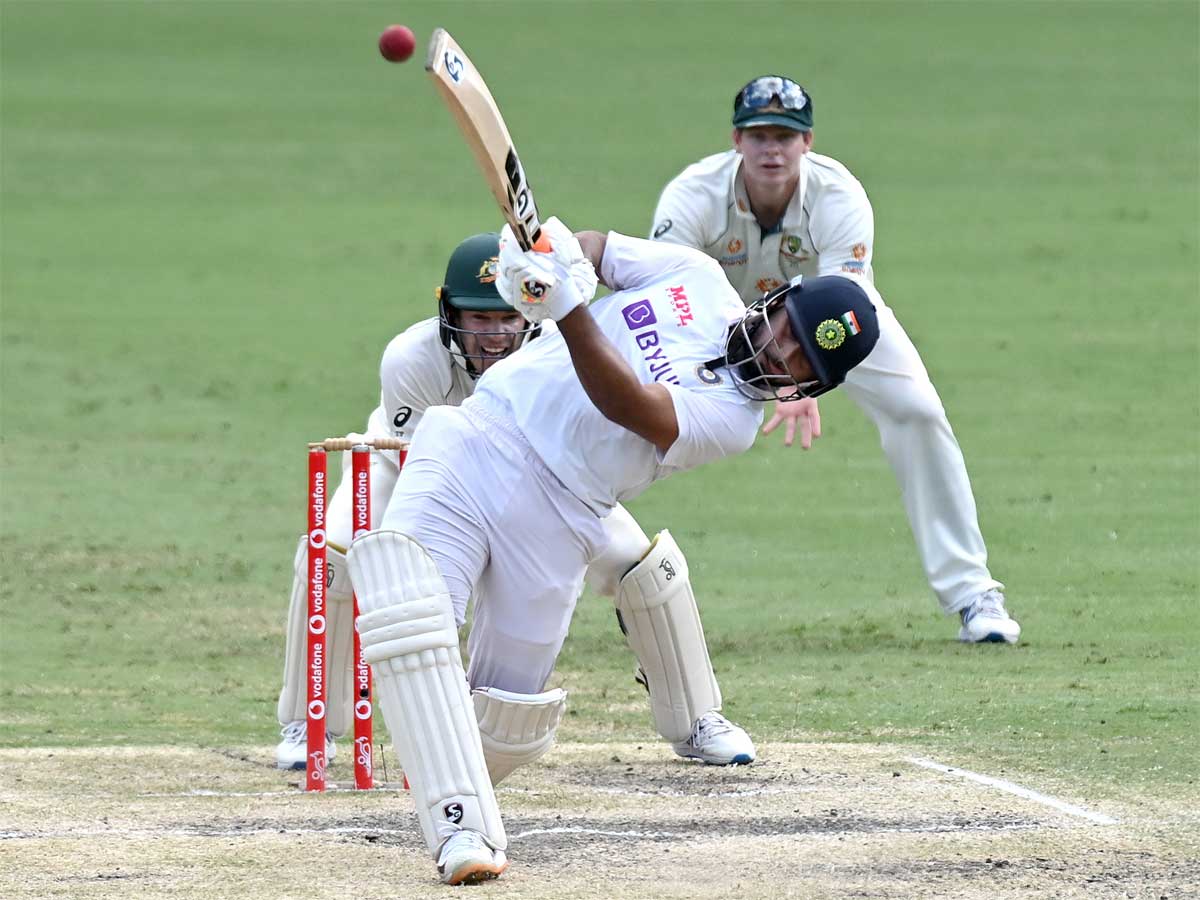
(Rishabh Pant won India the decisive Gabba Test – Getty Images)
You think Rishabh has found his batting template in Test cricket?
I guess he is very well aware of his game plan. The same strategy worked for him in Sydney, where he got 97. He was very disappointed there when he got out. He played a similar innings in Brisbane as well. Now, we’ve seen how he likes to play his cricket – the hundred which he got the last time in Australia, the one in England, they all bear the same style.
His batting clearly spells out one thing – he takes his time initially and once he’s settled, he can singlehandedly take the game away from the opposition. I think that’s his template. He clearly needs to back his game.
After Adelaide, the coaching staff got trolled. After Brisbane, the same staff was praised. But is it so much about the coaches?
A coach can guide you, he’ll give you that confidence, he’ll give you whatever tips – as a batsman, as a bowler. But ultimate, at this level, it’s about the players, how we deliver, how we play and function as a unit.
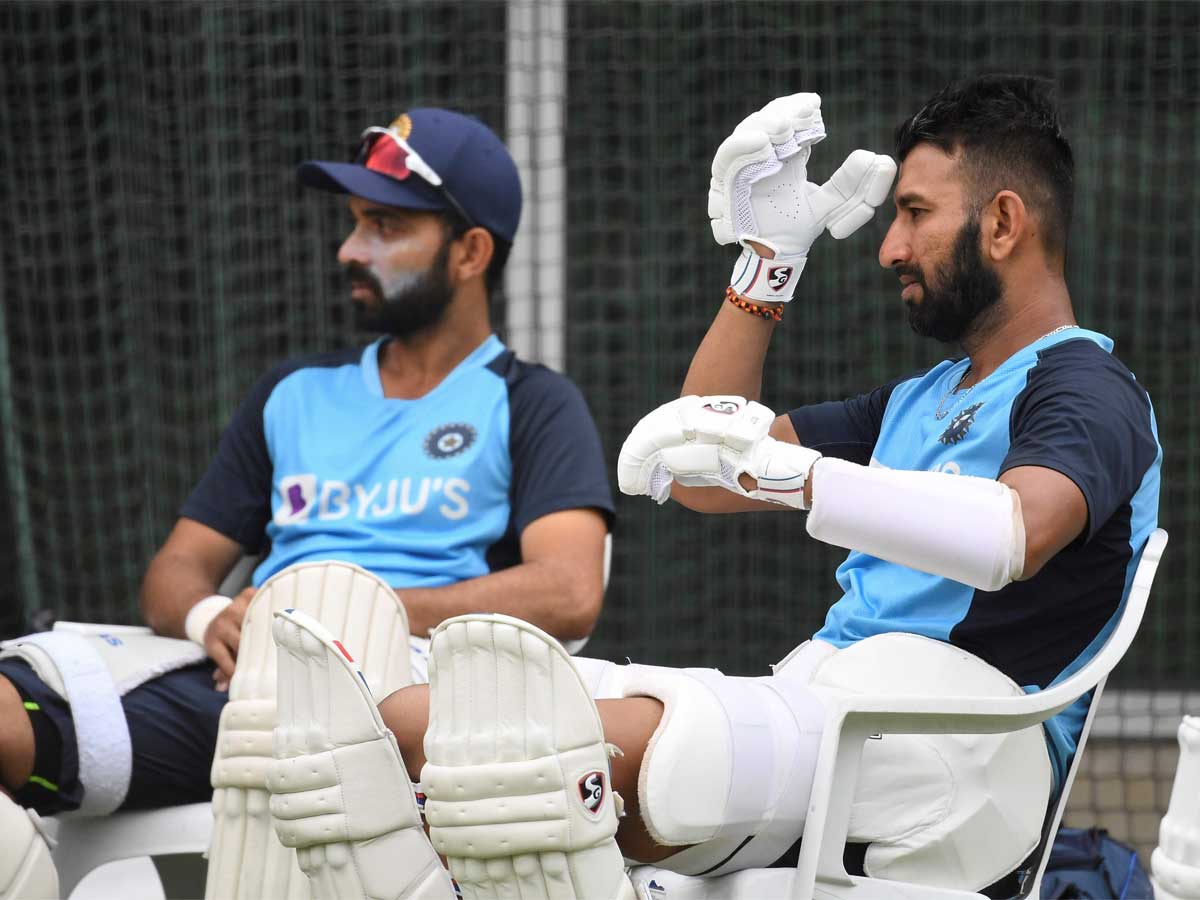
(Rahane, left, and Cheteshwar Pujara during a training session in Australia – AFP Photo)
Versus Australia – 3609 balls faced in 28 innings; 1258 balls faced in 2018-19; 928 balls in 2020-21 – the numbers that Cheteshwar Pujara has stacked up are insane…
His determination, focus – these qualities have to be admired. Willing to get hit for his team, taking body blows – it was a phenomenal feat. It’s about what your team needs and how gutsy and mentally tough you are – that’s what defines Pujara.
People who understand Test cricket for what it is will never undermine his contribution. He knows his game really well and he’s never been perturbed about what people have to say. His presence in the team is priceless and it allows the rest of the squad to rally around him.
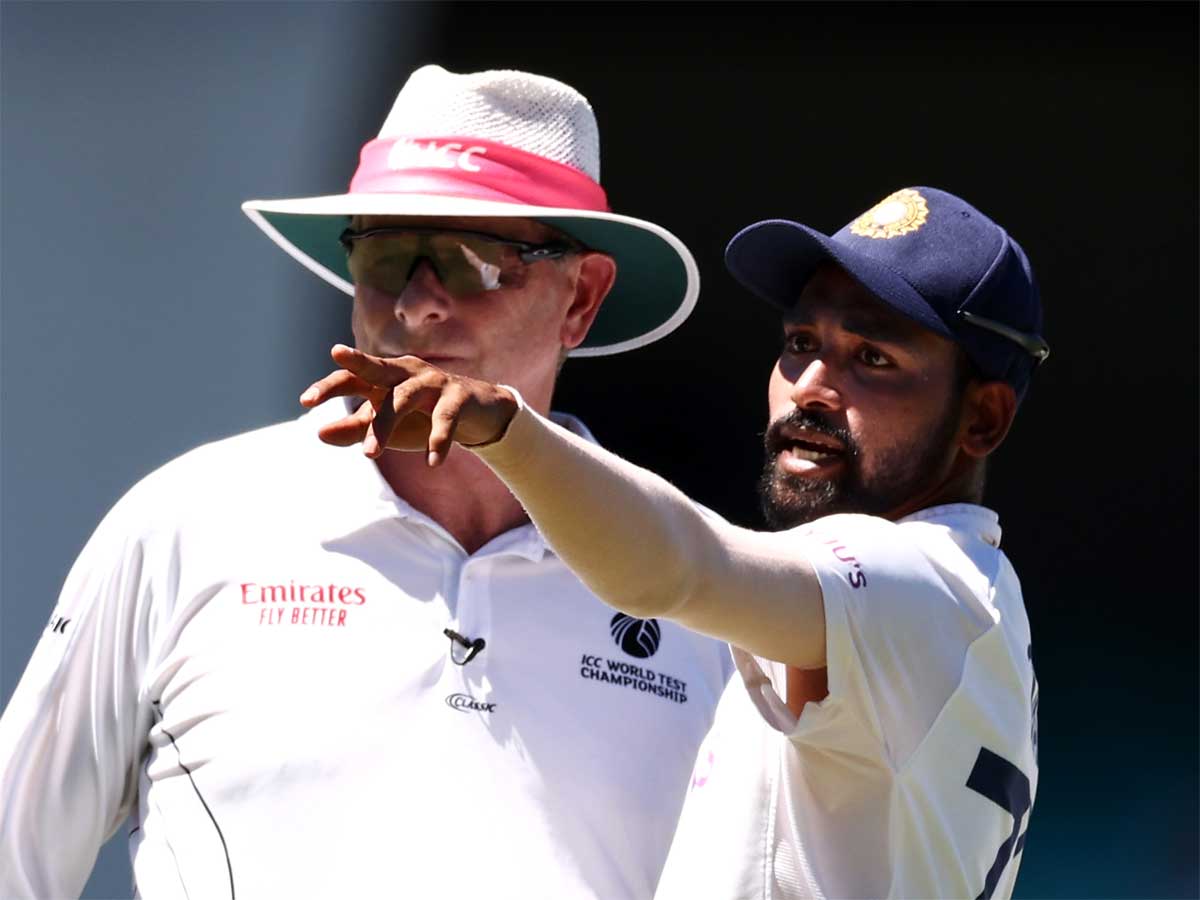
(Mohammed Siraj complaining to the umpire about a section of the crowd hurling abuses at him during the Sydney Test – Getty Images)
Coping up verbal abuse is one thing and racial slurs completely another thing. That must’ve been awful…
When we go abroad, these instances aren’t really uncommon. The thin line between supporting your team and abusing the other is often crossed. So, it’s not the first time that an Indian team copped up verbal abuse while playing overseas. But when you go after colour and things like that – that stuff is not acceptable at all.
The players who were standing near the boundary were listening to these abuses. But when the slurs got racial and Siraj and others came and complained, that’s when we decided it’s not acceptable. We told the umpires it has to be sorted. People will abuse, they will use bad language – these things generally happen. But there’s no place for racism.
So, when that happened, I had to put my foot down and tell them (umpires) that those people first need to be evicted and only then we’ll start the game. The umpires told us that if we want to walk out of the field, we can. I said “no, we’re not going to walk out. We’re here to play cricket and we will. But at the same time, I have to protect my players. You just take those guys out and initiate action and we can start the game immediately”.


